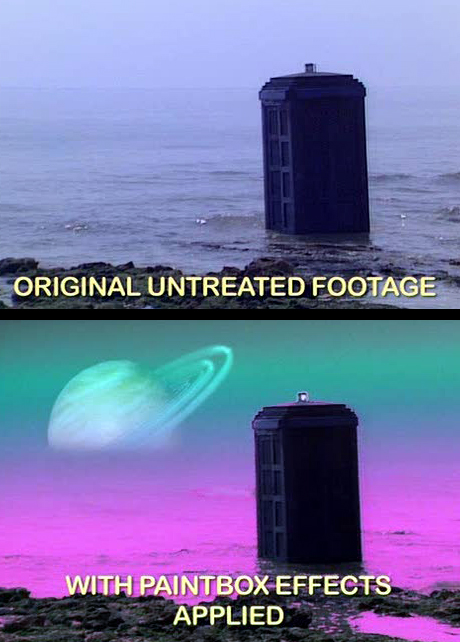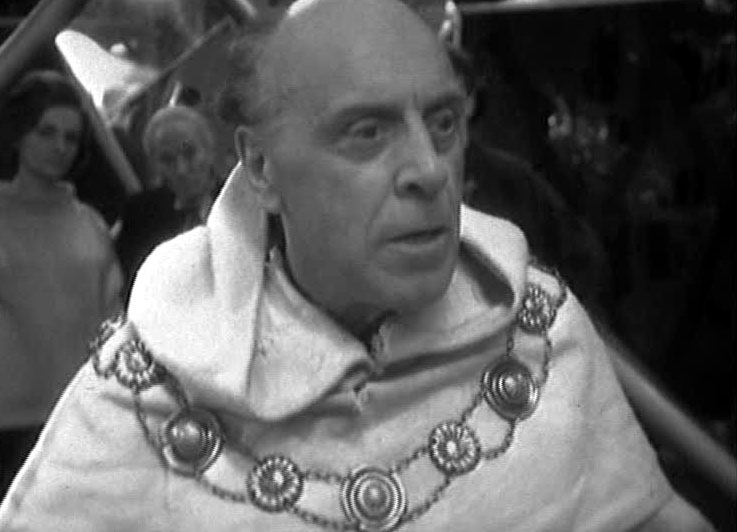Transmat:Doctor Who: Difference between revisions
No edit summary |
Eyacorkett (talk | contribs) mNo edit summary |
||
| (43 intermediate revisions by 8 users not shown) | |||
| Line 1: | Line 1: | ||
__NOTOC__ | __NOTOC__ | ||
{{template:transmat:{{PAGENAME}}}} | {{template:transmat:{{PAGENAME}}}} | ||
<div | <div id="tr-box-container" style="width:98%"> | ||
<div id="tr-box-container" class="tr-box-cols" style=margin-top:40px> | <div id="tr-box-container" class="tr-box-cols" style=margin-top:40px> | ||
<div class="tr-box one"> | <div class="tr-box one"> | ||
{{thead|The women who gave ''Doctor Who'' back to us}} | {{thead|The women who gave ''Doctor Who'' back to us}} | ||
[[file:JaneTranter.jpg|link=http://tardis.wikia.com/wiki/Transmat:Doctor_Who?file=David_Tennant_interviews_Doctor_Who_Producers_-_Doctor_Who_Confidential_-_BBC]] | [[file:JaneTranter.jpg|center|link=http://tardis.wikia.com/wiki/Transmat:Doctor_Who?file=David_Tennant_interviews_Doctor_Who_Producers_-_Doctor_Who_Confidential_-_BBC]] | ||
{{tcap|Click for video}} | |||
Think ''Doctor Who'' is just for boys? Don't you believe it. Not only was the show's [[Verity Lambert|very first producer]] a woman, but it would never have come back without the fierce advocacy of '''[[Jane Tranter]]''' and '''[[Julie Gardner]]'''. Considering her importance to ''Doctor Who'' it's somewhat ironic that Tranter's only on-screen ''credits'' are for ''[[Torchwood: Miracle Day]]''. But Gardner, her "partner in crime", is tied only with [[Russell T Davies]] as the most prolific producer in ''[[Doctor Who]]'' history. | Think ''Doctor Who'' is just for boys? Don't you believe it. Not only was the show's [[Verity Lambert|very first producer]] a woman, but it would never have come back without the fierce advocacy of '''[[Jane Tranter]]''' and '''[[Julie Gardner]]'''. Considering her importance to ''Doctor Who'' it's somewhat ironic that Tranter's only on-screen ''credits'' are for ''[[Torchwood: Miracle Day]]''. But Gardner, her "partner in crime", is tied only with [[Russell T Davies]] as the most prolific producer in ''[[Doctor Who]]'' history. | ||
</div> | </div> | ||
<div class="tr-box | <div class="tr-box two"> | ||
{{thead|Industrial action}} | {{thead|Industrial action}} | ||
[[File:Paintbox.jpg|link=http://tardis.wikia.com/wiki/Transmat:Doctor_Who?file=BBC%2527s_Historic_Mainframe_Arrives%2521%2521_%2528Quantel_Paintbox_DPB_7000%2529_This_created_many_80s_programs%2521%2521]] | |||
{{tcap|Click for a video of a [[21st century]] geek as he takes delivery of one of the two Paintboxes used by the BBC in the 1980s}} | |||
The '''[[Quantel Paintbox]]''' was a graphics workstation that allowed ''[[Doctor Who]]'' to have a primitive form of [[colourist|colour grading]] in the [[1980s]]. To find out more about the "business of show", go to '''[[:category:production information]]''', where you can read about [[colour separation overlay]], [[low loader]]s, [[telerecording]]s, [[vidFIRE]], [[rostrum camera]]s, [[2" quad]] tape, [[Ealing Studios]] and tons more.</div> | The '''[[Quantel Paintbox]]''' was a graphics workstation that allowed ''[[Doctor Who]]'' to have a primitive form of [[colourist|colour grading]] in the [[1980s]]. To find out more about the "business of show", go to '''[[:category:production information]]''', where you can read about [[colour separation overlay]], [[low loader]]s, [[telerecording]]s, [[vidFIRE]], [[rostrum camera]]s, [[2" quad]] tape, [[Ealing Studios]] and tons more.</div> | ||
<div class="tr-box | <div class="tr-box one"> | ||
{{thead|Surprising guest star}} | {{thead|Surprising guest star}} | ||
{{surprising guest}} | |||
</div> | </div> | ||
<div class="tr-box | <div class="tr-box two"> | ||
{{thead|Ex-Doctors never die, they just make audios}} | {{thead|Ex-Doctors never die, they just make audios}} | ||
The careers of the [[Fifth Doctor|Fifth]], [[Sixth Doctor|Sixth]], [[Seventh Doctor|Seventh]] and [[Eighth Doctor]]s are '''significantly''' longer [[Big Finish Doctor Who audio stories|in audio]] than on television. Check out their latest works at '''[[:category:{{CURRENTYEAR}} audio stories]]''' | The careers of the [[Fifth Doctor|Fifth]], [[Sixth Doctor|Sixth]], [[Seventh Doctor|Seventh]] and [[Eighth Doctor]]s are '''significantly''' longer [[Big Finish Doctor Who audio stories|in audio]] than on television. Check out their latest works at '''[[:category:{{CURRENTYEAR}} audio stories]]'''. | ||
</div> | </div> | ||
<div class="tr-box | <div class="tr-box one"> | ||
{{thead|The relevance of comics}} | {{thead|The relevance of comics}} | ||
Officially, only ''[[The Lodger (TV story)|The Lodger]]'' has been explicitly adapted from a comic strip — also called ''[[The Lodger (comic story)|The Lodger]]''. | Officially, only ''[[The Lodger (TV story)|The Lodger]]'' has been explicitly adapted from a comic strip — also called ''[[The Lodger (comic story)|The Lodger]]''. | ||
[[File:10MickeyFootball. | [[File:10MickeyFootball.jpg|center|link=http://tardis.wikia.com/wiki/Transmat:Doctor_Who?file=Craig_asks_The_Doctor_to_leave_-_Doctor_Who_-_BBC]] | ||
However, several stories have clearly taken material from comic strips — often those in ''[[Doctor Who Magazine]]''. ''[[The Shakespeare Code (TV story)|The Shakespeare Code]]'' contains a good amount of material from ''[[A Groatsworth of Wit (comic story)|A Groatsworth of Wit]]'', and the notion of the Doctor absorbing the [[time vortex]] in order to spare a [[companion]] was explored in both ''[[The Parting of the Ways (TV story)|The Parting of the Ways]]'' and ''[[The Flood (comic story)|The Flood]]''. | However, several stories have clearly taken material from comic strips — often those in ''[[Doctor Who Magazine]]''. ''[[The Shakespeare Code (TV story)|The Shakespeare Code]]'' contains a good amount of material from ''[[A Groatsworth of Wit (comic story)|A Groatsworth of Wit]]'', and the notion of the Doctor absorbing the [[time vortex]] in order to spare a [[companion]] was explored in both ''[[The Parting of the Ways (TV story)|The Parting of the Ways]]'' and ''[[The Flood (comic story)|The Flood]]''. | ||
</div> | </div> | ||
<div class="tr-box two"> | <div class="tr-box two"> | ||
{{thead|The first of the "money men"}} | {{thead|The first of the "money men"}} | ||
'''[[Donald Baverstock]]''' was the [[British Broadcasting Corporation|BBC]] executive who set the the wheels in motion that eventually led to the creation of ''[[Doctor Who]]''. Essentially the original commissioner of the programme, he hired [[Sydney Newman]] and later imposed a sense of financial responsibility upon [[producer]] [[Verity Lambert]]. </div> | '''[[Donald Baverstock]]''' was the [[British Broadcasting Corporation|BBC]] executive who set the the wheels in motion that eventually led to the creation of ''[[Doctor Who]]''. Essentially the original commissioner of the programme, he hired [[Sydney Newman]] and later imposed a sense of financial responsibility upon [[producer]] [[Verity Lambert]]. | ||
But Baverstock wasn't the only '''[[:category:BBC executives|BBC executive]]''' to have a profound impact on the development of ''Doctor Who''. Make sure you read about [[Lorraine Heggessey]], [[Mark Thompson]], [[Danny Cohen]], [[George Entwistle]], [[Tony Hall]], [[Shaun Sutton]], [[Sydney Newman]] and others. </div> | |||
<div class="tr-box two"> | |||
{{thead|Things released on [[{{CURRENTDAY}} {{CURRENTMONTHNAME}} (releases)|{{CURRENTDAY}} {{CURRENTMONTHNAME}}]] }}{{:{{CURRENTDAY}} {{CURRENTMONTHNAME}} (releases)}} | |||
</div> | |||
<div class="tr-box one"> | <div class="tr-box one"> | ||
{{thead| | {{thead|Did you know…}} | ||
{{Doctor Who Wiki/DYK}} | |||
</div> | |||
<div class="tr-box three"> | |||
{{thead|[[{{CURRENTDAY}} {{CURRENTMONTHNAME}} (people)|{{CURRENTDAY}} {{CURRENTMONTHNAME}}]] births and deaths }}{{:{{CURRENTDAY}} {{CURRENTMONTHNAME}} (people)}} | |||
</div> | </div> | ||
{{#ifexpr: {{PAGESIZE:{{CURRENTDAY}} {{CURRENTMONTHNAME}} (production)|R}} < 440|| | |||
<div class="tr-box two"> | <div class="tr-box two"> | ||
{{thead| | {{thead|Production history for [[{{CURRENTDAY}} {{CURRENTMONTHNAME}} (production)|{{CURRENTDAY}} {{CURRENTMONTHNAME}}]] }}{{:{{CURRENTDAY}} {{CURRENTMONTHNAME}} (production)}} | ||
</div>}} | |||
</div> | </div> | ||
</div> | </div> | ||
{{reflist}} | {{reflist|2}} | ||
{{cache clearer}} | |||
Latest revision as of 08:24, 14 July 2024
The War Games was a 1969 serial which significantly changed Doctor Who. It was the first story which named the Doctor's people as "Time Lords", and the first to ever depict his home planet. It was also the first to show that the Doctor was genuinely a renegade, liable to the criminal courts on his home world. But it was also full of "lasts". It was the final serial in black and white, and the swan song for the Second Doctor, Jamie McCrimmon and Zoe Heriot. In fact, it was the only story prior to David Tennant's finalé which involved the departure of the entire cast of regulars. It was the last serial for several years in which the TARDIS was fully functional and under the Doctor's control, as one of the consequences of the story was that the Doctor be exiled on Earth thereafter. However, because the serial did not end with a clear regeneration, or actually seeing the Doctor be forced to go to Earth, a narrative gap was created between it and the next televised story. There are therefore many Second Doctor stories which take place after the Doctor's sentencing in this story, but before its execution. One of the biggest contributions to Doctor Who lore caused by The War Games is thus the so-called "Season 6b".
Think Doctor Who is just for boys? Don't you believe it. Not only was the show's very first producer a woman, but it would never have come back without the fierce advocacy of Jane Tranter and Julie Gardner. Considering her importance to Doctor Who it's somewhat ironic that Tranter's only on-screen credits are for Torchwood: Miracle Day. But Gardner, her "partner in crime", is tied only with Russell T Davies as the most prolific producer in Doctor Who history.
The careers of the Fifth, Sixth, Seventh and Eighth Doctors are significantly longer in audio than on television. Check out their latest works at category:2024 audio stories.
Officially, only The Lodger has been explicitly adapted from a comic strip — also called The Lodger.
However, several stories have clearly taken material from comic strips — often those in Doctor Who Magazine. The Shakespeare Code contains a good amount of material from A Groatsworth of Wit, and the notion of the Doctor absorbing the time vortex in order to spare a companion was explored in both The Parting of the Ways and The Flood.
Donald Baverstock was the BBC executive who set the the wheels in motion that eventually led to the creation of Doctor Who. Essentially the original commissioner of the programme, he hired Sydney Newman and later imposed a sense of financial responsibility upon producer Verity Lambert.
But Baverstock wasn't the only BBC executive to have a profound impact on the development of Doctor Who. Make sure you read about Lorraine Heggessey, Mark Thompson, Danny Cohen, George Entwistle, Tony Hall, Shaun Sutton, Sydney Newman and others.- 1973 - Part four of the TV Comic story Nova was published.
- 1979 - Part two of The Creature from the Pit premiered on BBC1.
- 1981 - "The Cave of Skulls" was repeated on BBC2.
- 1986 - Revenge of the Cybermen was released on VHS.
- 1994 - The Seventies was published by Doctor Who Books.
- 1997
- Ghost Devices was published by Virgin Books.
- The VHS box set The E-Space Trilogy was released.
- 2003
- Exile was released by Big Finish Productions.[1]
- Deadly Reunion was published by BBC Books.
- Marco Polo was released by BBC Audio.
- 2008
- Part one of The Mark of the Berserker premiered on CBBC.
- Doctor Who: The Complete Fourth Series was released on Region 2 DVD.
- 2010 - DWDVDF 48 was published by GE Fabbri Ltd.
- 2011
- Aladdin Time was released by AudioGO.
- DWA 242 was published by BBC Magazines.
- DWI 8 was published by Panini UK.
- 2015 - The Doctor Who Level Pack for LEGO Dimensions was released.
- 2016
- The Third Doctor Adventures: Volume 2 was released by Big Finish.
- The CD re-release of Tales from the TARDIS: Volume One was released by BBC Audio.
- DWFC 84 was published by Eaglemoss Collections.
- 2021 - Timejacked! was released by Big Finish.
- 2022
- Tenth Doctor Novels Volume 5 and the audiobook of The Power of the Daleks were released by BBC Audio.
- A special illustrated hardback edition of Doctor Who and the Daleks was published by BBC Books.
- ... that the pre-title sequence of The Eleventh Hour was actually an entirely separate production to the main body of the episode, and that it was filmed months after principal photography had wrapped on Matt Smith's debut story? (WC: Doctor Who Video Explorer)
- ... that Frank Sinatra was one of the Brigadier's favourite musical acts? (PROSE: Smash Hit)
- ... that the Thousand Day War was a war fought at the end of the 21st century between humans and Ice Warriors? (PROSE: Legacy, GodEngine and others)
- ... that there were two versions of the Tenth Doctor in London during Christmas 2006 — one aboard a Sycorax spaceship and one helping a boy named Daniel at St Nicholas's Hospital? (TV: The Christmas Invasion, PROSE: Deep and Dreamless Sleep)
- ... that Halohawks were capable of flight despite having no wings? (COMIC: Danger Flight)
- 1969 - Location filming for Spearhead from Space took place. (REF: Doctor Who The Handbook: The Third Doctor)
- 1976 - Pre-filming for The Robots of Death took place at Ealing Studios. (REF: Doctor Who The Handbook: The Fourth Doctor)
- 1979 - Studio filming for Shada took place at BBC Television Centre studio 3. (REF: Doctor Who The Handbook: The Fourth Doctor)
- 2005
- The Children in Need Special was filmed at Upper Boat Studios. (DWMSE 14)
- Big Finish's Sarah Jane Smith audio story Buried Secrets was recorded at the Moat Studios.
- 2006 - Big Finish's Bernice Summerfield audio story The Tub Full of Cats was recorded.
- 2009 - Big Finish's audio adaptation of the unproduced TV story The Macro Men was recorded at the Moat Studios.
- 2018 - Big Finish's Rose Tyler audio drama anthology The Dimension Cannon was recorded.
- 2020 - Big Finish's audiobook version of Fellowship of Ink was recorded remotely.
- ↑ Exile is (Almost) Here.... Big Finish, via Internet Archive. Retrieved on 14 December 2003.
- ↑ Doctor Who Guide
- ↑ People Pill
- ↑ The Guardian




